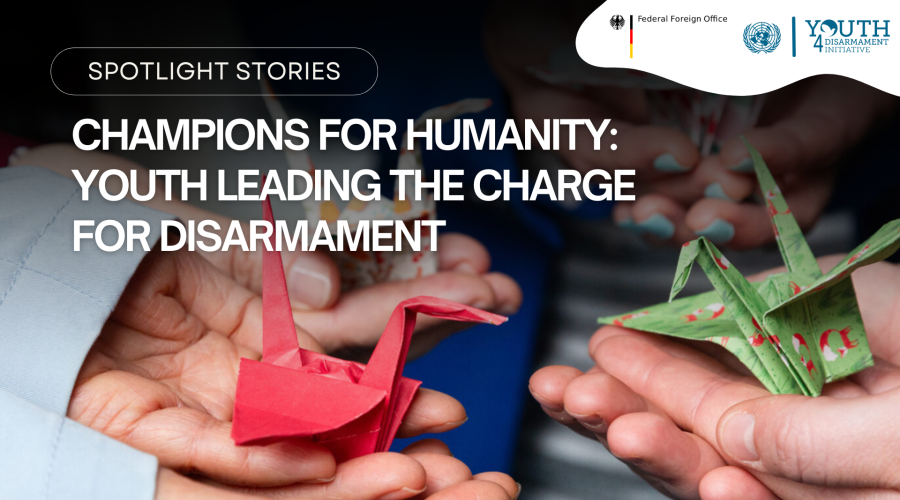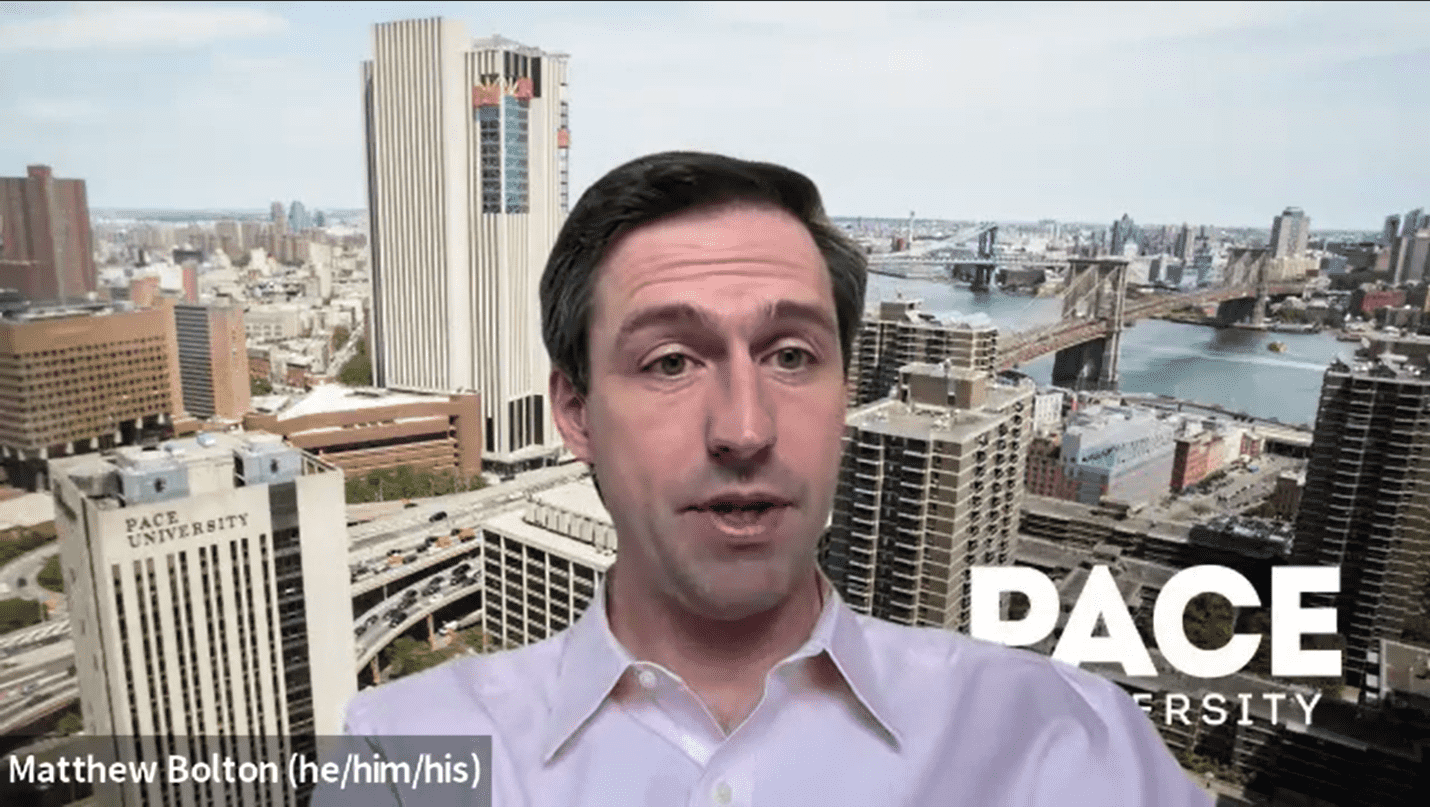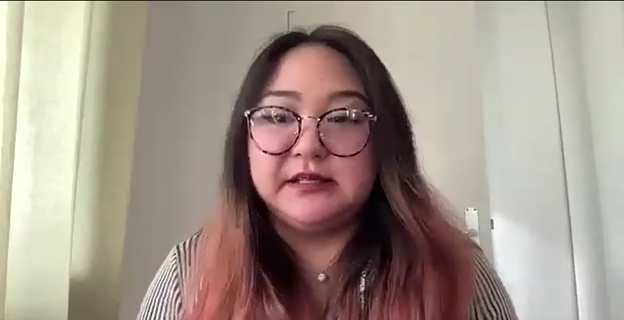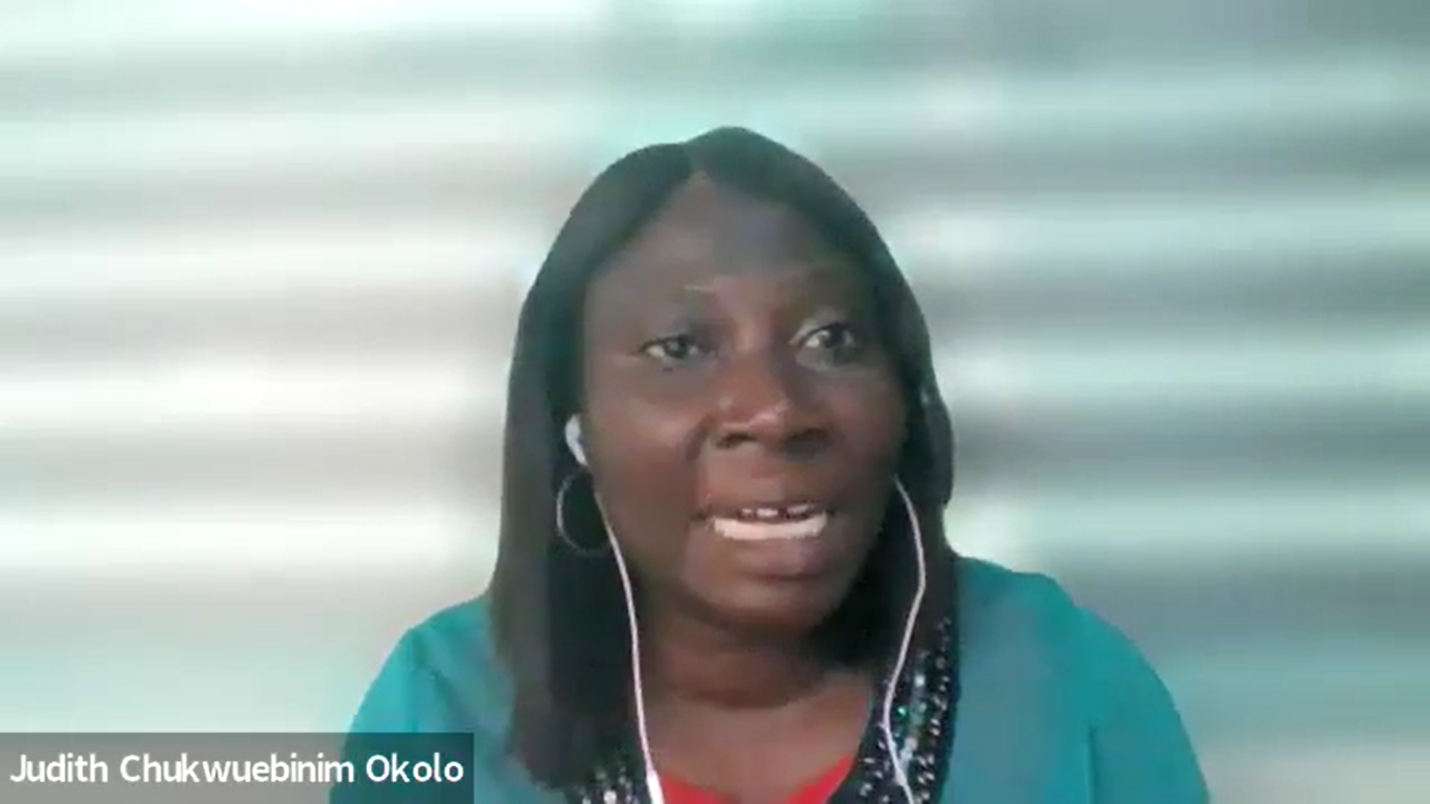
For our second webinar, the UN Youth Champions for Disarmament came together to learn more about the first pillar of the UN Secretary-General’s Agenda for Disarmament - 'Disarmament to Save Humanity' – and our role to support efforts to create a safer, more peaceful future for all.
Moderated by Dr. Matthew Bolton, a professor in political science and co-director of the International Disarmament Institute at Pace University, the session provided information on all types of weapons of mass destruction, including nuclear, chemical, and biological. Speakers shared information on the devastating impact of these weapons as a result of their development, testing and use, and the International Community’s efforts to strengthen disarmament and non-proliferation in light of these bleak challenges.
Dr. Bolton provided an overview of the multilateral disarmament processes established to prevent and reduce the proliferation of such weapons, including international treaties and forums. We also learned about the role of civil society and advocacy campaigns to inspire further action, including the International Campaign to Abolish Nuclear Weapons (ICAN). These examples provided great motivation to us as a group by underscoring the importance of collective action to influence international agreements.

A highlight of the webinar was the presentation from Mr. Chris King, Chief of the Weapons of Mass Destruction Branch at the United Nations Office for Disarmament Affairs (UNODA). Leveraging his experience, Mr. King outlined UNODA's work to provide substantive support to Member States and other stakeholders to address weapons of mass destruction, including relevant multilateral treaties such as the Nuclear Non-Proliferation Treaty (NPT), Treaty on the Prohibition of Nuclear Weapons (TPNW) and the Biological Weapons Convention (BWC) among others. Mr. King also highlighted current challenges to nuclear disarmament and non-proliferation efforts, including the lack of trust between Member States and the evolving geostrategic environment. In light of these challenges, he stressed that multilateral treaties remain as relevant as ever despite perceived slow progress.
Our second speaker, Ms. Aigerim Seitenova, a disarmament activist from Kazakhstan, emphasized the need to learn from and engage with the past to create sustainable and inclusive processes for the future. She also noted the key role of civil society in amplifying and preserving the testimonies of survivors impacted by nuclear testing, which can help promote better understanding and awareness amongst the public. Testimonies shared by affected communities also help raise awareness on the multigenerational consequences of nuclear tests, which continues to impact communities today. She also stressed that the process of achieving justice can be detraumatizing for those sharing their testimony, with reflections on her own personal experience.

The spotlight then turned to Ms. Judith Okolo, whose work at the Nigerian National Biotechnology Development Agency presents an example of proactive prevention. Her advocacy efforts have engaged and empowered several young people in her local community on biosafety and biosecurity issues, including the development and distribution of a handbook on the topic with local schools. Ms. Okolo also highlighted the significant role of young people, especially those from the Global South, in raising awareness and encouraging action to protect people and the planet from the impact of such dangerous weapons.

As the webinar drew to a close, it became evident that the journey towards disarmament is not solely a task for policymakers and diplomats - it is a collective responsibility shared by all. In our group discussions, we discussed how everyone, everywhere can be a champion for humanity. Through collaboration, advocacy, and community engagement, we can help address the consequences and threats posed by weapons of mass destruction to pave the way for a more sustainable and stable world for current and future generations.
Disclaimer: Spotlight Stories submitted by the #Youth4Disarmament community are not official publications of the United Nations. The stories provide a platform for youth to share their opinions and reflect on their experiences in the disarmament field. The views expressed are those of the author, and the publication of the Spotlight Stories does not imply an endorsement of the views expressed nor that the material is accurate or without bias.